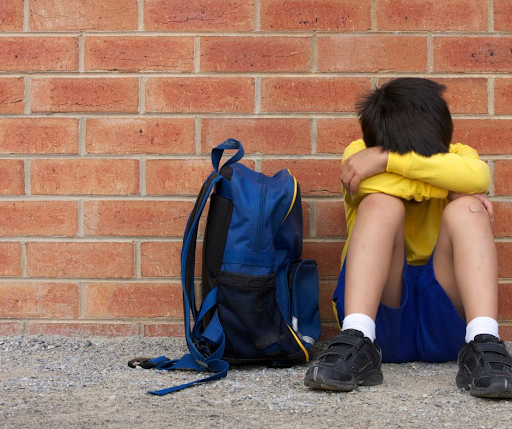Bullying, a pervasive issue affecting countless young people worldwide, extends beyond the immediate playground scuffles or hurtful words. The consequences of bullying can linger far into the future, leaving an indelible mark on the mental health of those who endure it. This article explores the multifaceted landscape of bullying and its enduring effects on teenage mental health issues, shedding light on the importance of early intervention and comprehensive support systems.
Table of Contents
Understanding the Dynamics of Bullying
Bullying, in its many forms—be it physical, verbal, or cyber—exerts a profound impact on the mental health of young individuals. Research shows that bullying behavior is linked to a range of mental and behavioral problems, from poor self-esteem to more severe issues like depression and anxiety. The power imbalance inherent in bullying situations exacerbates these effects, creating an environment where the mental well-being of the bullied is consistently undermined.
Physical, Verbal, and Cyber: The Triad of Harm
Physical bullying often involves the exertion of physical strength to intimidate and harm. The bruises may fade, but the psychological impact endures, creating a breeding ground for mental health problems. Verbal bullying, with its arsenal of hurtful words and demeaning language, further contributes to a toxic environment that erodes the emotional resilience of its victims.
The digital age has ushered in a new frontier for bullies, computers, laptops, tablets, and cell phones, where the anonymity of cyberbullying magnifies the scope and intensity of the harm inflicted, leaving lasting scars on the mental well-being of those targeted. In this online realm, the impact of hurtful actions extends beyond physical boundaries, creating an environment where individuals, who have experienced cyberbullying, may feel defenseless against a barrage of attacks, further emphasizing the critical need for comprehensive strategies to address this evolving challenge.
Mental Health Effects of Bullying Behavior
The effects of bullying on mental health are staggering, affecting victims on various levels. Individuals who have been bullied often grapple with low self-esteem, increased anxiety, and sleep problems. These emotional health problems can extend into adulthood, shaping the way individuals interact with the world. Bullying, both physical and verbal, can lead to a heightened risk to experience depression, with victims experiencing a pervasive sense of sadness and hopelessness that lingers long after the bullying stops.
Moreover, the impact of bullying extends beyond the victims. Those who witness bullying can also suffer mental health issues. Data shows that students who observe bullying incidents at school reported heightened levels of anxiety and depression, irrespective of whether they sided with the bully or the victim. Bystanders may encounter stress stemming from concerns about potential retaliation or from the internal conflict of wanting to intervene but refraining from doing so.

How does bullying affect mental health?
A wealth of research underscores the profound link between bullying and a spectrum of mental health problems. The repercussions extend from the more overt signs, such as poor self-esteem, to the insidious onset of more severe issues like depression and anxiety. The young psyche, still in the process of development, is particularly susceptible to the negative influences of being bullied, with the potential to shape lifelong attitudes towards oneself and the world.
Central to the dynamics of bullying is the inherent power imbalance between the aggressor and the victim. This imbalance magnifies the impact of the bullying experience, as the constant threat and intimidation create an environment where the mental well-being of the targeted individual is consistently undermined. The victim is often left grappling with feelings of helplessness, worthlessness, and a distorted self-image, contributing to a pervasive sense of vulnerability that infiltrates various aspects of their lives.
Enduring Scars of Bullying: Depression and Anxiety
Being bullied at school leaves enduring scars on the mental health landscape of young individuals. The persistent attacks on self-esteem, coupled with the emotional problems inflicted, create fertile ground for the development of more severe mental health issues.
Children who have been bullied are at a greater risk to develop depression, casting a pervasive shadow over their daily lives, even as young adults. Similarly, anxiety takes root in the persistent fear and stress linked to being a target, resulting in an increased sense of unease that infiltrates various aspects of their existence.
Moreover, the impact of bullying extends beyond emotional and psychological realms, often manifesting as physical injury. Victims may experience sleep disturbances, chronic headaches, and other stress-related physical symptoms. This intertwining of mental and physical well-being underscores the profound and holistic toll that being bullied can take on a young person, emphasizing the critical need for comprehensive support systems and interventions to address the multifaceted consequences of such traumatic experiences.
Bullying and Suicidal Thoughts
Perhaps one of the most alarming effects of bullying is its association with thoughts of self harm and suicidal behavior. Bully victims are at a higher risk of developing suicidal ideation, and in severe cases, these thoughts may progress to actual attempts. The psychological toll of being bullied, compounded by feelings of isolation and despair, can push vulnerable young people to the brink. Addressing bullying becomes not just a matter of preventing immediate harm but safeguarding the mental health of the most vulnerable members of our society.
The Call for Comprehensive Strategies
Understanding the dynamics of bullying is not merely an academic exercise but a call to action. The multifaceted nature of bullying demands comprehensive strategies that address its various forms and the power imbalances at play. By recognizing the profound effect of a child being bullied on mental health, society can pave the way for interventions that not only curtail immediate harm but also foster resilience and support systems for those affected.
In essence, the dynamics of bullying unveil a complex interplay between power, aggression, and the fragility of the human psyche. As we delve into the profound effects on mental health, it becomes apparent that a united effort is necessary to dismantle the structures that perpetuate bullying and build a foundation of empathy, understanding, and support for the generations to come.
Preventing Bullying and Mitigating Its Effects
Understanding the effects of bullying on someone’s mental health and daily life opens the door to developing effective strategies and finding solutions. In the battle against the pervasive issue of childhood bullying and its enduring impact on mental health, a proactive stance through effective prevention strategies becomes paramount. By addressing this complex challenge head-on, society can create an environment that fosters empathy, respect, and mental well-being for all.
The Crucial Role of Bullying Prevention Programs
Bullying prevention programs stand as the frontline defense against the insidious nature of bullying. Operating within the structured confines of schools and extending into communities, these programs play a pivotal role in shaping a culture where empathy and respect take precedence, and the primary goal is to, not only stop bullying, but prevent bullying from even happening.
While every U.S. state mandates the implementation of bullying prevention strategies in schools, a concerning statistic reveals that one in five students have reported being bullied at or outside of school. What’s even more troubling is that 41% of students who have been bullied believe it is likely to recur, according to PACER’s bullying statistics. Further, children who have been bullied at school, or by a classmate, are at an increased risk for developing anger issues, aggressive behavior, and engage in substance use, as well as other risky behaviors, later in life.
The difficulty arises because children navigate their own social circles, often outside the direct view of adults. Consequently, administrators have a tough time creating prevention programs that can effectively reach into these private spaces. Implementing awareness campaigns, educational modules, and fostering open discussions, these programs aim to dismantle the foundations of bullying and nurture an atmosphere where every individual feels valued and secure.
Empowering Through Education and Awareness
Education lies at the heart of effective prevention. By imparting knowledge about the different forms of bullying, its affect on mental health, and the role each individual plays in shaping a supportive community, these programs empower both students and educators alike. Awareness campaigns serve as powerful tools, challenging stereotypes and fostering an environment where diversity and inclusion are celebrated rather than exploited.
Mental Health Professionals as Pillars of Support
The involvement of mental health services is instrumental in mitigating the long-term effects of being bullied as a child. These professionals bring a wealth of expertise to the table, offering targeted support to young individuals navigating the tumultuous aftermath of bullying. A mental health professional can service as a trusted adult to talk to a child who has been bullied.
Children who experience both sides of bullying dynamics, taking on the roles of both bullies and victims, often encounter greater challenges in adulthood. These individuals exhibit elevated rates of anxiety, depression, schizophrenia, and substance abuse compared to their counterparts who solely experience victimization or engage solely in bullying behavior during childhood.
By providing coping mechanisms and personalized strategies, mental health professionals contribute to the reconstruction of self-confidence, guiding young minds towards resilience and healing.
Parental and Adult Involvement: A Unified Front
Parents, educators, and trusted adults form a united front against bullying, playing a pivotal role in creating a safe haven for the emotional well-being of young individuals. Open communication channels between adults and children become a linchpin in addressing and preventing bullying incidents. Actively engaging in conversations about a child’s experiences allows them to feel heard, understood, and supported, fostering an environment where issues can be identified and addressed before they escalate.
Recognizing Warning Signs and Early Intervention
Vigilance is key to the prevention of long-term mental health effects resulting from bullying. Parents and educators must be attuned to warning signs that may indicate a young person is grappling with the aftermath of bullying. From avoidance of school to changes in sleep patterns or a sudden decline in academic performance, these indicators serve as red flags that demand attention. Early intervention, informed by a proactive stance, becomes a powerful tool in mitigating the potential long-term impact on mental health.
All in all, preventing bullying and mitigating its effects requires a multifaceted approach, involving education, professional support, and the active involvement of parents and trusted adults. By cultivating a culture that rejects bullying in all its forms and provides robust support systems for those affected, society can pave the way for a future where young individuals can thrive emotionally, mentally, and socially. This collective effort is not only a response to the challenges of today but an investment in a healthier, more compassionate world for generations to come.
Children who experience bullying tend to have poor mental health as adults.
In conclusion, the pervasive nature of bullying and its long-term effects on teenage mental health demand our attention and action. The silent battle fought by young people facing bullying requires a collective effort from parents, educators, mental health professionals, and society at large.
By implementing effective prevention strategies, fostering open communication, and providing robust support systems, we can create a safer and more compassionate environment for the generations to come. It is our responsibility to stand against bullying and protect the mental health of our children, ensuring they have the opportunity to thrive and grow into resilient adults.








